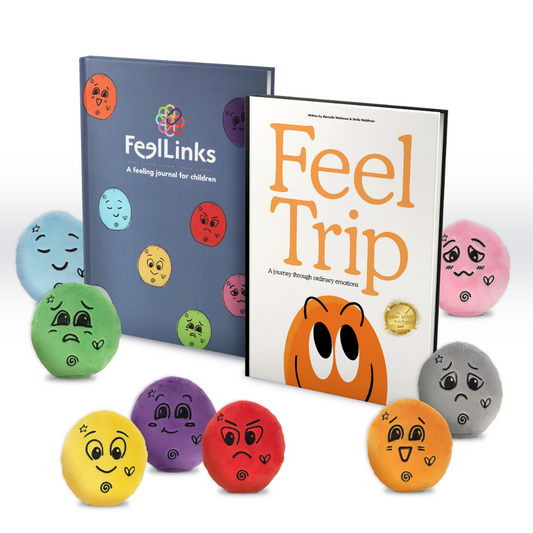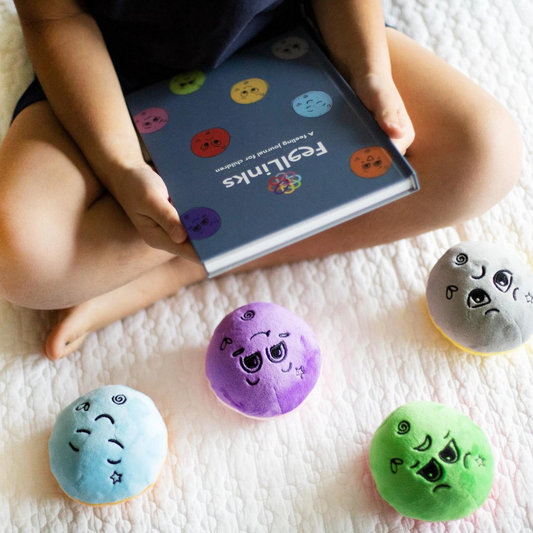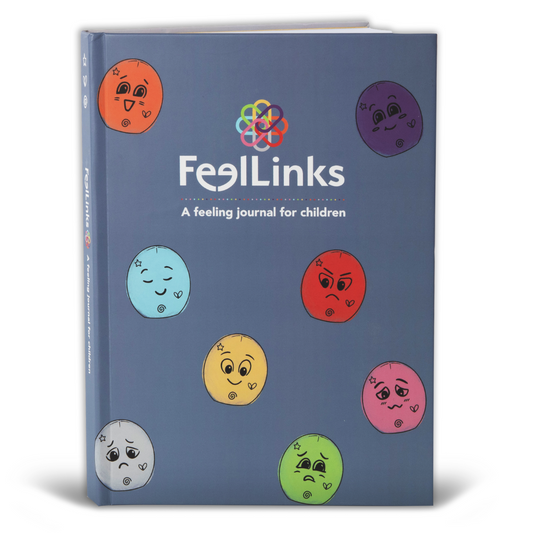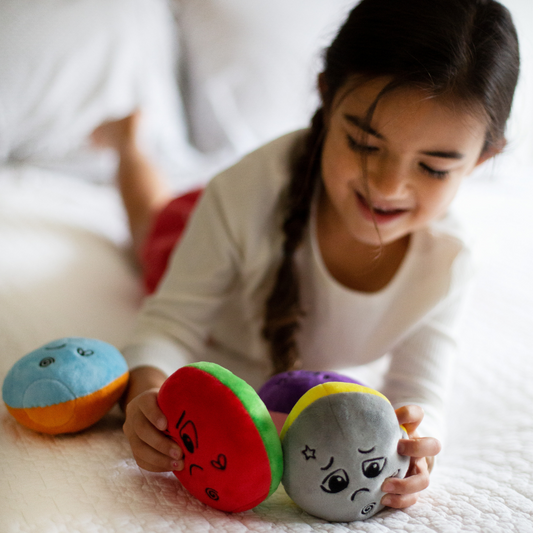Nurturing Confidence and Self-Esteem In Our Children
Share
 My daughter's mirror in her bedroom. She added her own affirmations 🥰
My daughter's mirror in her bedroom. She added her own affirmations 🥰
✨✨INCLUDES A FREEBIE PRINTABLE AT THE END✨✨
"Behind every young child who believes in himself [themselves] is a parent who believed first." -Matthew Jacobson
Nurturing confidence and self-esteem in our children is important to establish early on. I think we can agree that confidence and self-esteem can be built upon at any time in our lives, but why not place a focus on instilling this from early childhood? This way, our children are more likely to feel self-confident when they hit their teenage and adult years.
Here are ways for you to encourage these character traits within your child. It all begins with a positive, loving, safe environment.
1. Trust and Safety: It starts when they are newborns! Coming in calmly and gently to care for our babies - being the co-regulator, the trusted adult they need to help soothe them and care for them when they are in need. Food, diaper changes, cuddles, playtime - these are all ways to create that safe place for your baby.
As our children begin to grow we continue to engage, smile, hug, play, and fill up their emotional cup (see more with THIS blog post) supporting them in their environment and keeping that sense of safety and trust.
2. Offering Support: For our youngest children, they need much more of our hands-on support in problem-solving. As we teach them new things and help them problem-solve new situations and events, they are building vital skills to eventually be able to solve on their own. From how to put on their shirt, tie their shoes, zip their backpack, and problem-solve with peers - there is much to solve throughout life!
I like to think of the support system as gradually releasing hands-on supports as children gain experience in problem-solving and acquire more skills to "fix it". This helps our children build confidence and self-esteem knowing that they CAN DO IT!
3. Adjusting Supports: Each and every one of our children are their own unique beings. Even siblings in the same household will need support in their own way. For instance, in our household, one of my children likes to cuddle and stay close when his tough emotions arise, and my daughter chooses to take time alone. I suggest having lots of "tools in your kit" to support your child and be able to adjust as needed - it will influence the way their brain develops. The way you support your child's needs will influence their confidence as you care for and encourage them, especially when they need your support during times of tough emotions. FeelLinks set is a hands on resource that can support your child in building emotional intelligence skills ; lifelong skills in areas that are the foundation of our own self-awareness and social awareness.
4. Body Awareness: You might notice that many baby toys have mirrors attached to them. It's a great way for babies to begin noticing who they are, what they look like, and how they fit in the world around them. As they grow, we point out body parts and teach them the names of their body parts. We sing songs and play games like, "Head, Shoulders Knees and Toes" "The Hokey Pokey" and "If You are Happy and You Know It" - these are all great ways to incorporate play and music with body awareness. Body awareness helps our children build self-esteem and confidence in who they are and where they fit into the world!
5. Celebrate: Celebrate all the things! There is much excitement in the learning that occurs every day with our children from day one. It boosts their confidence when we make a big deal out of new milestones or skills, for example: rolling over, sitting up, feeding themselves, buttoning their pants, scoring a goal or creating artwork. Celebrating the little and big things boosts their self-confidence and encourages them to continue to try new things.
6. Model by Example: You are your child's #1 model. Speak kindly to yourself and others. Put your best effort into all you do. Act in ways that you want your children to emulate, ways that align with your family values. Your child will learn by example. This will further establish a sense of pride and confidence in the things they set out to accomplish.
7. Failing is OKAY: Adults, we cannot swoop in to solve everything for our children. Letting them fail is okay and actually quite good for our kids. Failing helps build resilience and confidence in knowing that they CAN DO IT! As children grow, try new things, gain skills, and learn problem-solving strategies, you will be there walking WITH them, supporting them through. This means, while they may fail, you will be there, encouraging them, continuing to give them tools, and ultimately letting them problem-solve on their own. It's okay if it does not work the first, second, or third time, for your child - they are learning valuable life skills - they can bounce back from adversity and move on - better known as resilience. These skills will build their confidence and self-esteem in gaining the ever-so-important skill of independence!
So what does confidence look like?
- "I can do it." "I can and will learn from others."
- No need to control conversations.
- Givers. Looking out for other people. Connect like-minded people to one another.
- Share ideas to support others to grow and attain goals.
- Go for what they want. Aren't afraid to change their minds. Seek out advice and others viewpoints.
- Recognize what is in their control and do not get too hung up on what is outside of their control. Makes decisions. Lets things play out naturally.
- Non-verbal body language and other cues are aligned with their care and attentiveness.
- Willing to share the spotlight with others!
- Enjoys sharing in someone else's happiness. Celebrates the success of others and genuinely feels happy for their accomplishments.
I hope this is helpful for you in supporting your child in building these important character traits. Possessing confidence will greatly benefit our children as they navigate the ups and downs of life.
✨✨✨✨AFFIRMATIONS POSTER FREEBIE✨✨✨✨
"With confidence, you have won before you have started." -Marcus Garvey





